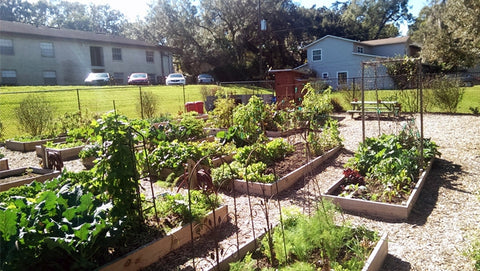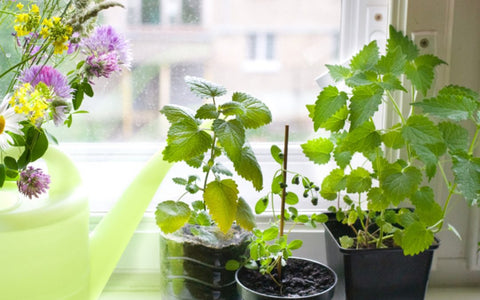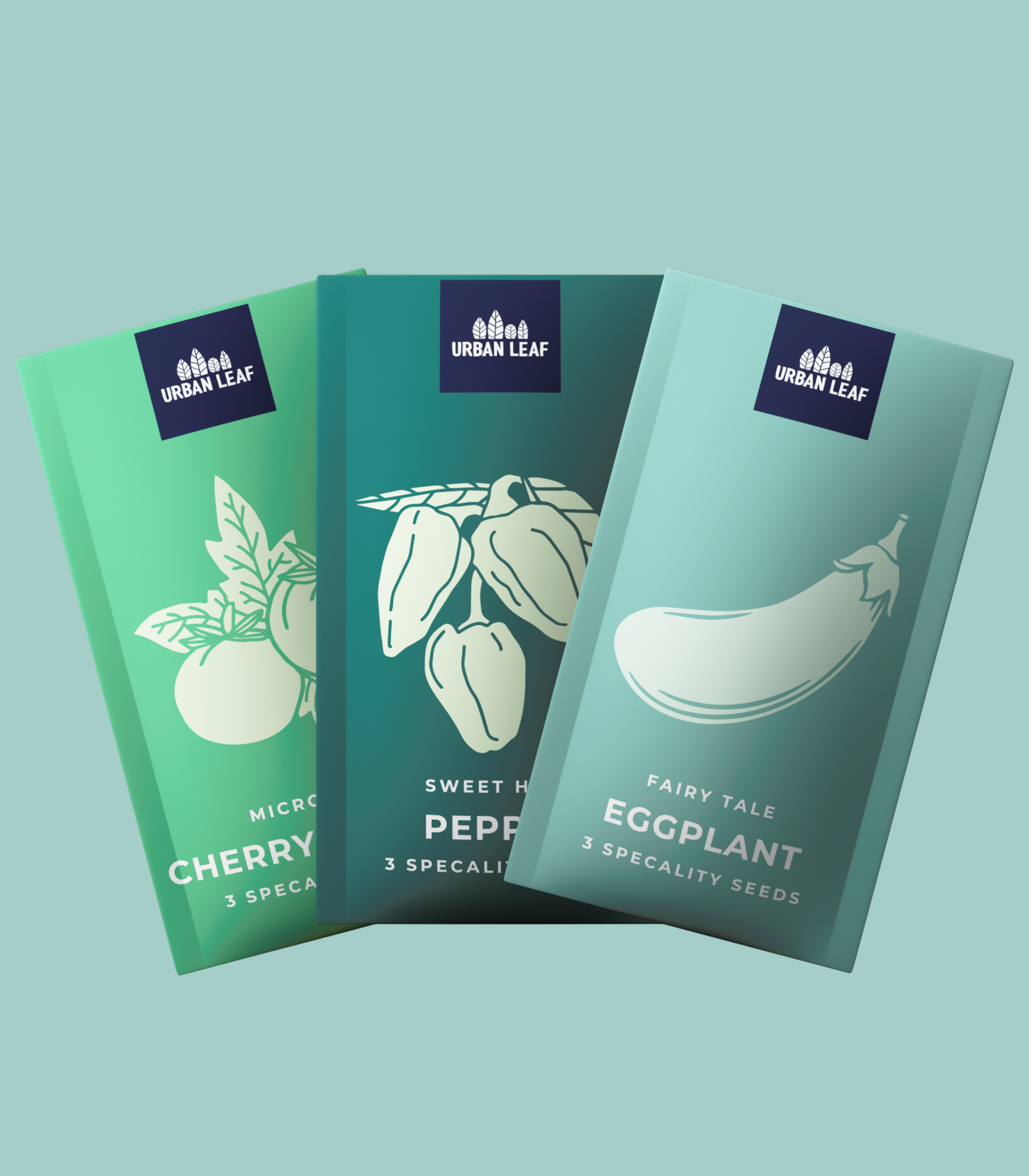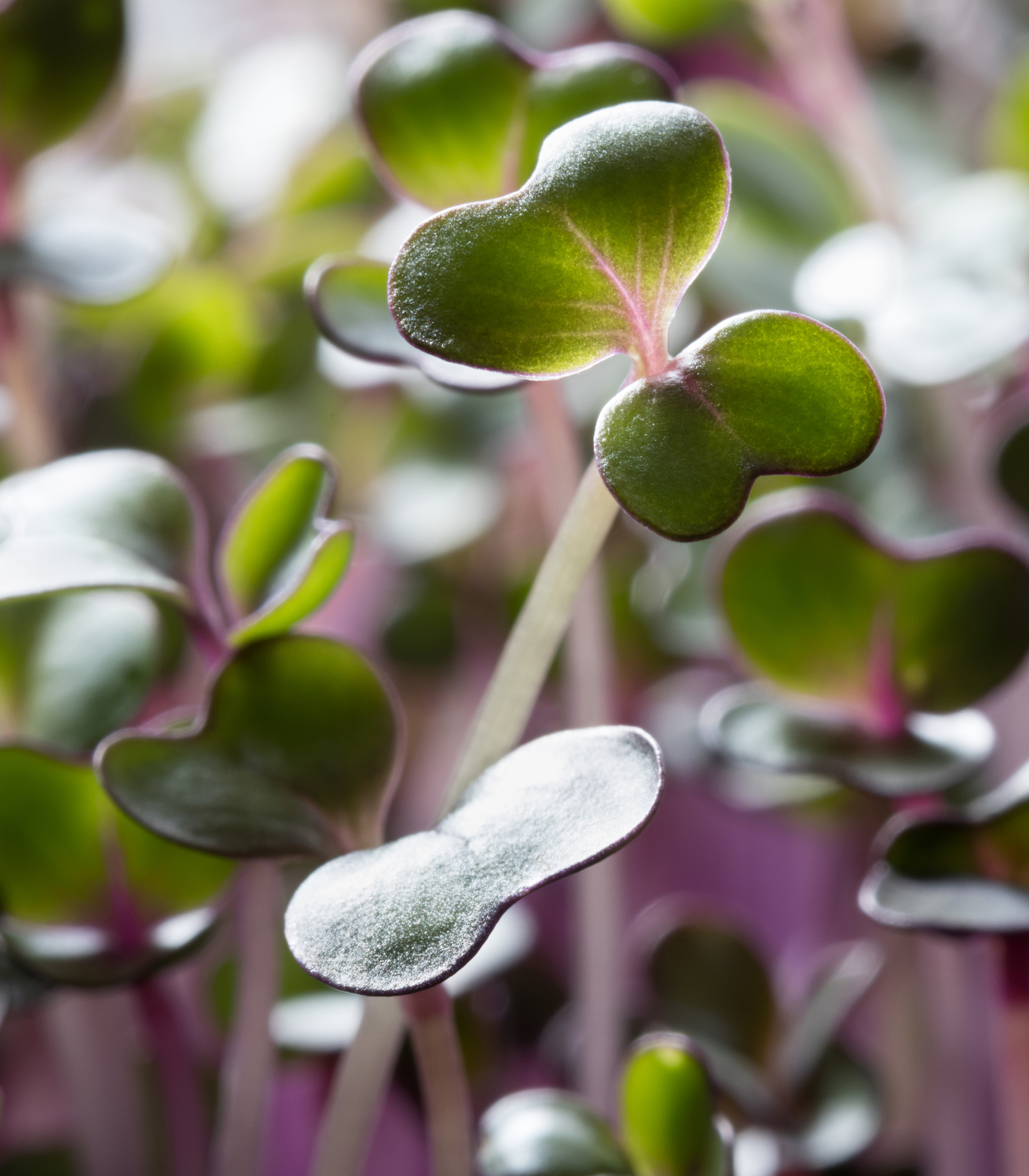An allotment (known as a community garden in North America) is a plot of land designated for individual, non-commercial gardening, primarily for growing edible plants. Community gardens gained popularity during World Wars I and II, referred to then as “Victory Gardens.” These gardens provided food for families facing scarcity while boosting morale, as gardeners felt empowered by their contributions. Interestingly, Victory Gardens have seen a resurgence with the recent global pandemic as people look to grow their own food at home. If you're eager to grow your own food but lack outdoor space, a community plot might be the perfect solution for you!
We spoke with Rachel of @rachels.allotment, a Plant Science PhD researcher with over a year of experience as an allotment holder. On her Instagram, she shares tips on growing your own food, reducing food miles, and learning along the way. Read on for Rachel’s expert advice on starting your own allotment garden!

What is an Allotment Garden?
Rachel explains, “In the UK, allotments are plots of land rented from the council or a private landowner, specifically for growing produce. You can choose between an individual plot or a community plot, which is a great option if you’re short on time.” In North America, this concept is referred to as a community garden, where you can grow fruits, veggies, and more on individual or shared plots.
What Are the Benefits of Community Gardening?

According to Rachel, one of the biggest benefits of allotment gardening is being able to grow your own fruits, vegetables, and flowers. “It’s empowering because you know your food hasn’t traveled long distances, reducing energy consumption and emissions. Plus, you control what’s applied to your plants—no surprise chemicals!” Additionally, the sense of community is invaluable. Fellow gardeners can offer advice and support, and gardening has been proven to improve mental health.
How to Begin
“Starting your community garden journey can be overwhelming, especially if your plot is overgrown with weeds,” Rachel says. She recommends starting small, like focusing on one section of your plot and expanding as you get the hang of it. The first step is to create a plan. “Identify where permanent structures like greenhouses or sheds will go, learn about your soil type, and determine the sunny and shady spots,” Rachel advises. Remember, it’s all a learning experience, and your community is there to help!
What Are the Easy Things to Grow on an Allotment?
Rachel emphasizes that, like any garden, what you grow depends on your local climate and soil type. She grows on clay soil and has found carrots challenging, but beans thrive. Her essential grow list for beginners includes peas, corn, potatoes, tomatoes, beans, sunflowers, lettuce, radishes, broccoli, strawberries, and carrots. For quick crops, she recommends salad leaves and herbs like rosemary, oregano, sage, and thyme, which require little attention.

“My essential grow list for first-year allotmenteers includes peas, corn, potatoes, tomatoes, beans, sunflowers, lettuce, radishes, broccoli, strawberries, and carrots.” – Rachel
Easy to Grow on an Allotment: Basil
Basil loves growing in pots or on windowsills and makes an excellent pesto.
Easy to Grow on an Allotment: Mint
Mint is prolific but spreads quickly, so be sure to contain it.
Easy to Grow on an Allotment: Lemon Balm
Lemon balm is versatile for making tea or garnishes.
How to Start an Allotment Garden
If you're ready to start your community garden journey, a simple Facebook search can help you find local groups. For New Yorkers, check out GrowNYC’s community gardens. If you're looking to start an allotment, research available grants and rally support from your neighbors. Locate a sunny spot and reach out to the landowner for permission. To learn more about starting a community garden, check out this guide.
Rachel notes that allotment waiting lists can be long, especially around London. In the meantime, indoor gardening can be a great way to express your love of growing while you wait for a plot to open up.
Recommended Allotment Websites
- Allotment Garden
- Wikipedia – Allotments
- Allotment Resources
- Allot More Allotments
- All About Allotments
We hope this inspired you to start your own community garden or allotment! Be sure to follow Rachel on Instagram for more tips, and let us help you begin your growing journey with our seed collection. Happy gardening!








There are no comments for this article. Be the first one to leave a message!